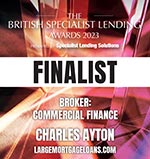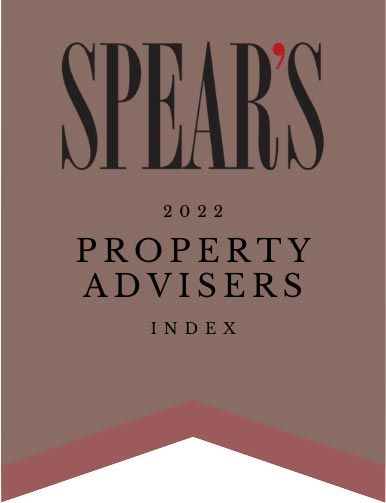Following more than a decade of cheap borrowing, the recent decision by the Bank of England to increase interest rates in February is sure to have an impact on all UK property owners. For the super-rich, this could mean a hike of tens of £1,000s on monthly mortgage repayments. And, with inflation on the up, it’s likely that the pressure on the Bank of England to increase rates further will continue.
Why do the super-rich borrow money?
It’s not unusual for the super-rich to borrow money to pay for property purchases. Years of cheap debt has meant that many wealthy individuals have preferred to borrow money to pay for property as an alternative to withdrawing funds from their investment portfolios to cover the cost. Also having a mortgage at the time of completion helps mitigate inheritance tax planning. With their wealth invested in solid performing assets and other alternative investments (such as art, crypto or classic cars), it’s also not always easy to access the large sums of cash that they need to buy a property outright. This makes purchasing a premium property using a mortgage often the preferred choice for high net worth individuals as well as very sensible with tax planning.
That’s not to say that finding the right mortgage deal is easy. The financial affairs of the super-rich are incredibly complex and, despite their personal high net worth, many wealthy individuals do not fit the vanilla lending criteria insisted upon by traditional lenders. Super-rich individuals often have a variety of unconventional income channels (such as inherited family wealth, offshore trusts and investment dividends) and many are self-employed in multiple positions without a true record of their earnings, all of which means they fall short of the usual lending criteria. Unlike the majority of property buyers, simply turning up to a local high street lender isn’t a viable option…or is it?
Whilst it’s true that traditional high street lenders tend only to lend to those who meet their stringent criteria, which the super-rich often don’t meet, many of these large financial institutions have a specialist private banking arm with expert advisors who are open to negotiating the right deal for the right customer. And during this time of rising interest rates, the right deal means a long term, low fixed rate mortgage, giving the buyer the security and stability of locking into predictable low borrowing costs when further rate rises are a real possibility.
Traditional lenders
Small and discrete, the private, prestigious family-owned banks are often the trusted advisors of the super-rich, with their myriad of specialist services such as tax planning, investment management, trust administration and estate planning. Their services are highly personalised with fees and deals individually negotiated to suit each client. Wealthy families will often retain the same firm from generation to generation leading to a long and prosperous relationship for both parties.
But when a high net worth individual needs to secure a low fixed rate mortgage, it’s the traditional lenders, not the smaller private banks, that come out on top. The majority of the property-owning population is familiar with shopping around to find the most competitive mortgage deal, however the wealthy are more likely to entrust the arrangement of their mortgage with the same private bank that they’ve always had a relationship with. This will most certainly not secure them the most competitive deal, in particular a low fixed rate.
Instead, most wealthy individuals would be better off approaching one of the big traditional lenders. Most have their own private banking arms, experienced in managing the money of the wealthy. These include Coutts (owned by Royal Bank of Scotland), Lloyds Private Bank, Barclays Wealth, HSBC Global Private Banking and Handelsbanken to name a few.
It’s unlikely that these banks will be advertising their low fixed rates, and indeed some will say that they are not offering such deals, but there is always a negotiation to be made. These larger lenders will be keen to secure other business, such as an investment portfolio or private pension, with wealthy potential clients and negotiating a competitive deal on a large value mortgage may be their one shot at establishing what could be a lucrative, long term relationship.
Banks and funding
The simple principle behind how banks operate is that they are able to fund loans and mortgages by using the cash that is deposited to them by savers and investors. In return, the banks charge borrowers a rate of interest which is then passed on in part to their savers as a ‘reward’ for putting their money with that particular banking institution. This is the same process for most mortgage lenders.
The larger traditional high street lenders, with their private banking arms, have access to vast amounts of depositors’ money providing them with the opportunity to lend high value mortgages at much lower fixed rates, which is why they are the perfect choice for wealthy property buyers looking to borrow money.
In comparison, the smaller family-owned private banks are funded differently – they do not hold large client deposits on their balance sheet meaning that their ability to lend money from their balance sheet is diminished. In addition, those bespoke services that make these firms such a popular choice with the super-rich, such as investment management and estate planning, come at a price. Some of these services are outsourced to other specialists with costs that need to be covered.
In contrast, the larger traditional lenders also offer such services but often they are provided on a much larger scale through their own in-house wealth management arms. This keeps the costs down and means that traditional lenders are in a much healthier financial position to be able to offer the type of long term, low rate fixed type of deal that would prove very popular with anyone looking to buy a high value property.
Lending money can be a risky and expensive business for banks. To raise funds, all banks which arrange mortgages look to raise money by trading in capital markets (‘the marketplace’) and managing their debt exposure with an interest rate swap. A swap is a contract between two institutions (such as a mortgage lender on one hand and an investment bank on the other) where they want to ‘swap’ a fixed rate payment for a variable rate payment in order to ‘hedge their bets’ and hopefully make money from the type of payment they’ve opted for (fixed or variable). Private banks, looking to raise large loans for their clients, can do so this way and charge them a rate which is aligned with the Bank of England base rate plus the current swap rate. For example, 1.6% variable over Bank of England base rate (currently 0.5%, March 2022) + 5 year swap rate of 1.44% (March 2022).
Financial experts study interest rates and if they believe that rates are due to rise and banks / lenders will be encouraged to pay more to depositors, then this will impact a bank’s profits and so swap rates are likely to rise. This affects fixed rate mortgage products which tend to become less attractive as banks try to revert to variable rate deals in order to protect their funds and continue to make money.
For the borrower though, if swap rates are high, a fixed rate mortgage is preferential, particularly one that can be secured over the long term. Given that currently interest rates are on the rise, and with that swap rates, then securing a fixed rate mortgage now is a must, particularly on a high value premium property where monthly repayments could skyrocket.
Top tips for securing a long term, low rate fixed mortgage
- Break with tradition
You may have used the same private bank to manage your money for years but to secure a super low fixed rate it’s worth shopping around with one of the private banking arms of the big traditional lenders. - Vanilla income
If your income is straightforward, transparent and uncomplicated, in other words more aligned with the lending criteria of a high street lender, then you are in a strong position to be able to secure a better deal with one of the more traditional lenders. For those wealthy individuals with a more complicated income structure, then a boutique private bank will be more suitable although they won’t be able to negotiate the same type of super low rate. - Place further business
If you have assets under management with one of the traditional lender private banks, this will give you more negotiating power, as lenders will be keen to manage further business with you. If not, consider transferring some funds to such a lender, for example an investment portfolio or private pension (SIPP or SSAS). This will give you leverage and will help you to secure that super low rate with terms to match. - Leverage existing properties
If you own properties already (whether mortgaged or outright), you can use these as leverage against a new mortgage and this will also help to secure you a lower LTV at a lower rate. - Margin / lombard loans
A margin or lombard loan is credit offered in the form of a fixed loan secured against a borrower’s investment assets such as equities, bonds or investment funds. Using an existing investment portfolio as security can give you bargaining power when negotiating a competitive margin. - Blended facility
This is the option to secure a low rate mortgage using both existing properties (point 3) and an investment portfolio (point 4) as collateral. - Seek the services of a specialist mortgage broker
Specialist mortgage brokers, such as Large Mortgage Loans, who are experienced at advising the ultra-wealthy, will not only have access to all the latest deals on the market but they have excellent relationships with most lenders and can often secure a bespoke rate and terms for individual clients.




















